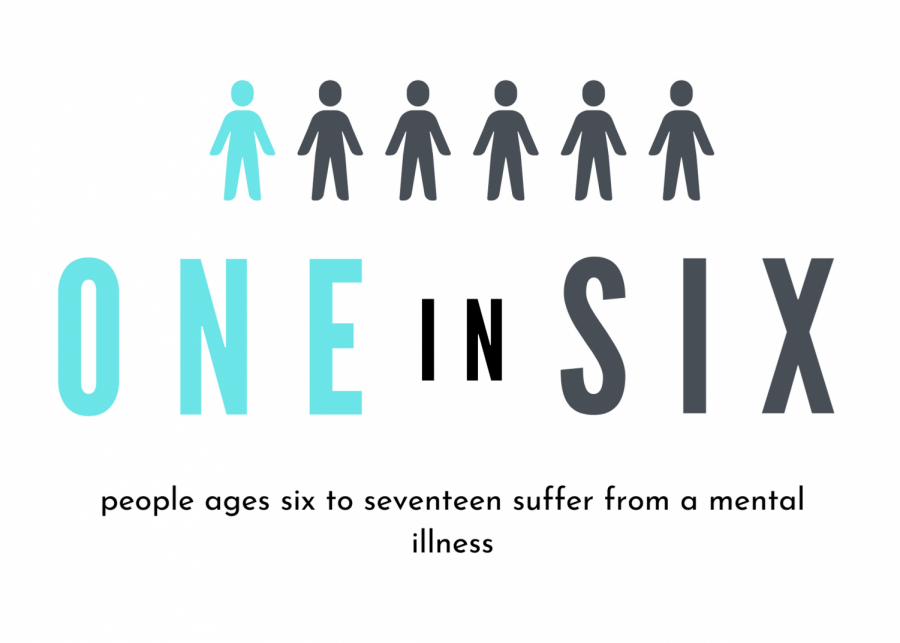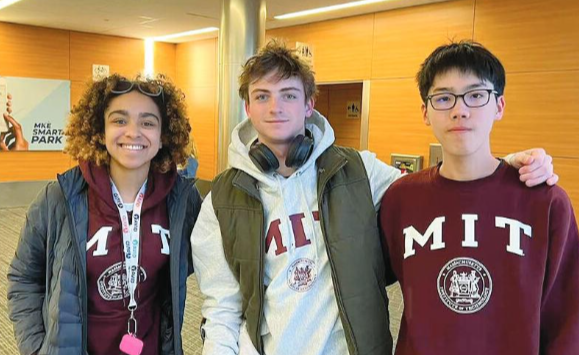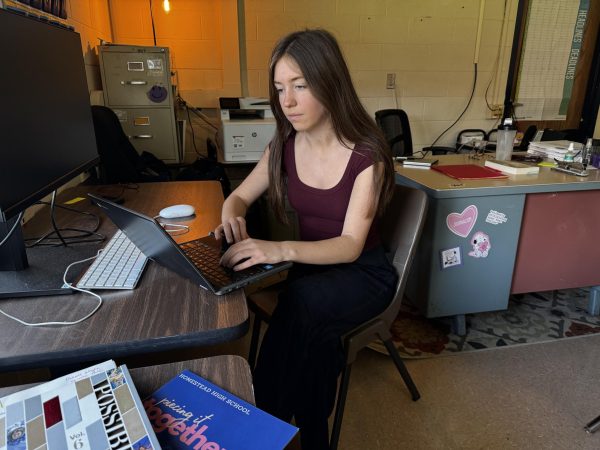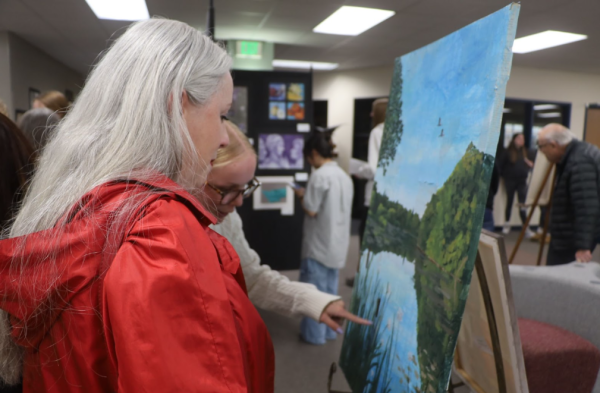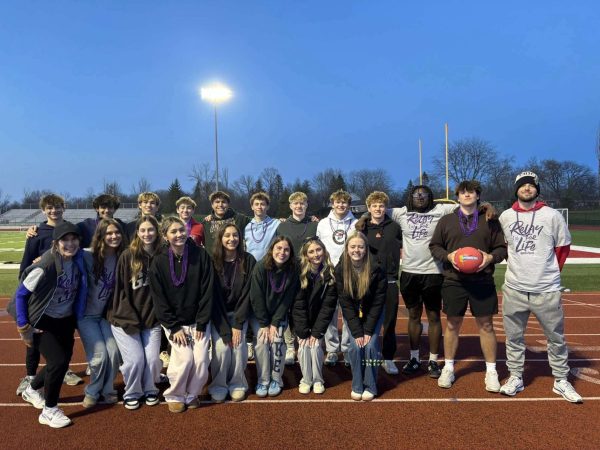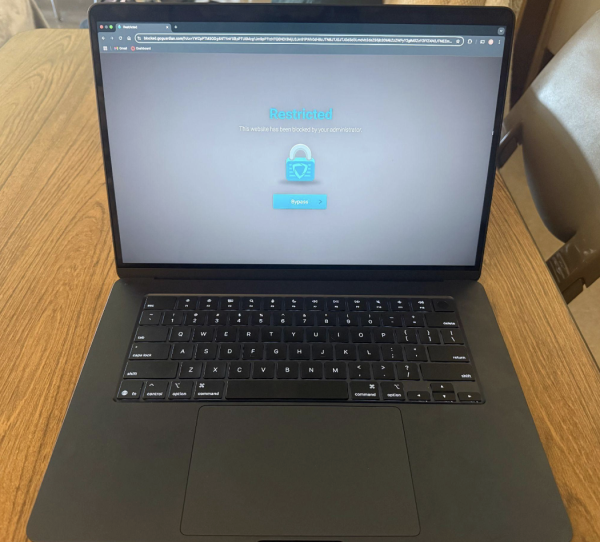REACH club brings awareness to mental health
According to the National Alliance on Mental Illness (NAMI), many mental illnesses begin at a young age but go untreated.
With Mental Health Awareness Month coming to a close, Homestead’s newly formed REACH club seeks to advocate for mental health in the school and local community.
According to statistics compiled by the National Alliance on Mental Illness (NAMI), one in five adults in the U.S., and one in six children ages six to seventeen, suffer from mental illness. NAMI also states that half of lifetime mental illnesses begin by 14 years old.
These mental health statistics suggest that a significant number of students will enter high school with mental illnesses that need to be addressed. However, NAMI reports that the average gap between the start of mental illness symptoms and receiving treatment is 11 years. This means that an average 14 year old suffering from a mental illness might not be treated until he or she is 25 years old.
This trend of mental illness beginning in one’s youth or teenage years is one of the many reasons why students must learn how to recognize and cope with mental health issues. Homestead’s REACH club, or Response Early Intervention and Assessment in Community Mental Health, aims to educate students on this topic at a relatively young age. By doing so, they hope to bring awareness to mental health struggles and rise above mental illnesses that students may be personally experiencing.
REACH was initially formed about one month ago at Homestead, but it shares a mission with many high school clubs across the country focused on raising awareness and destigmatizing mental health.
Their efforts place an emphasis on collaboration and learning from each other. During meetings, students provide coping strategies, present and discuss various topics, and engage in activities, such as designing posters. Club members plan for more outreach activities next year, something that has been difficult due to the pandemic.
Sonia Zacharias, sophomore, is the president and cofounder of REACH at Homestead. She encourages others to participate in the club, which is open to all Homestead students and will continue in the 2021-2022 school year. “I originally got inspiration to create this club after seeing another school’s website for a club very similar,” Zacharias said, “I think with more involvement it could be very advantageous.”
According to Zacharias, learning from each other is essential to improving mental health. “During my research I read studies explaining how beneficial serving or helping others is to your own mental health. This is the core reason service is also included in club activities,” Zacharias said.
Neekan Nasiri, sophomore and cofounder of REACH at Homestead, defined the objectives of the club. “The mission of REACH is to inform, educate, and raise awareness of mental health,” Nasiri said, “This involves symptoms, treatment, and overall recognition.”
Members of REACH not only learn about how to improve their mental health; they also discover how to apply this knowledge. “Students should join REACH in order to expand their knowledge and understanding of mental health issues to use in their own lives,” Nasiri said.
Jessica Jost, district nurse, discussed the importance of supporting and replenishing one’s mental health. “Our bodies and minds, no matter how young or old, can run on an empty tank at times, burning out from the everyday stress. Caring for our minds is as important as caring for our bodies,” Jost said. “Managing our own mental health will help us feel better emotionally, physically and mentally.”
The coronavirus pandemic has made grappling with mental illness even more difficult for many people. Factors such as tension and isolation during the pandemic have most notably led to an increase in anxiety and depression levels.
“I feel it is extremely important, especially now, to be aware of our mental health. Things are affecting people so differently. Being aware of our mental health, socially, emotionally and psychologically, will help us make better decisions and figure out how to handle the everyday ups and downs of life,” Jost said.
Caring for one’s mental health comes in many forms; however, stepping away from stress inducing activities and tuning into one’s mind is crucial.
Jost establishes some strategies to recharge. “Remember to take time to relax and reflect,” Jost said, “Journal, take a walk, meditate, read, watch movies, exercise, or talk with friends. Take time for yourself; it will help you live longer and feel better.”
In addition to maintaining one’s own mental health, it is important to support friends or family who may be struggling.
“I feel that more than ever it is important to be kind to others. Everyone is carrying some type of load, some more willing to talk about it and others hiding the pain. A simple ‘Hi, how are you doing today?’ can go a long way,” Jost said.
Though it can prove difficult to ascertain someone else’s state of mind, showing care and concern can potentially alleviate some of the weight of a mental health struggle.
“Sit and be a good listener. Let them share what they want and be supportive of their feelings without asking too many questions,” Jost said, “You could talk about things they enjoy doing; maybe take a walk and talk. Make sure to show them you respect their feelings by listening carefully and understanding what they are saying, reassuring you care about him or her.”
Ultimately, creating this sort of bond and ability to confide in one another can be a valuable tool for strengthening mental health. This is why establishing a strong sense of community has been one of REACH club’s goals.
Cofounder Neekan Nasiri expressed his satisfaction with the supportive atmosphere of REACH. “As a group we have a lot of fun building off of each other and helping each other grow,” Nasiri said, “Along with learning, our group helps with team building and really allows you to meet a lot of new people and make a lot of friends.”
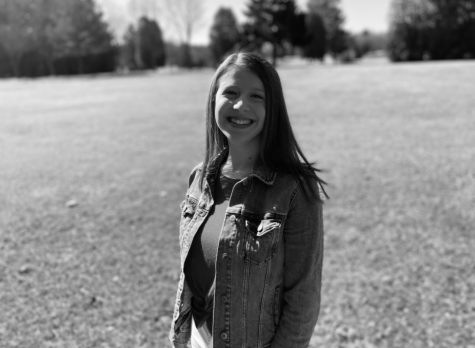
Ainsley Feigles is a senior at Homestead High School. She has always had a passion for writing and is enjoying spending her second year with Highlander...

